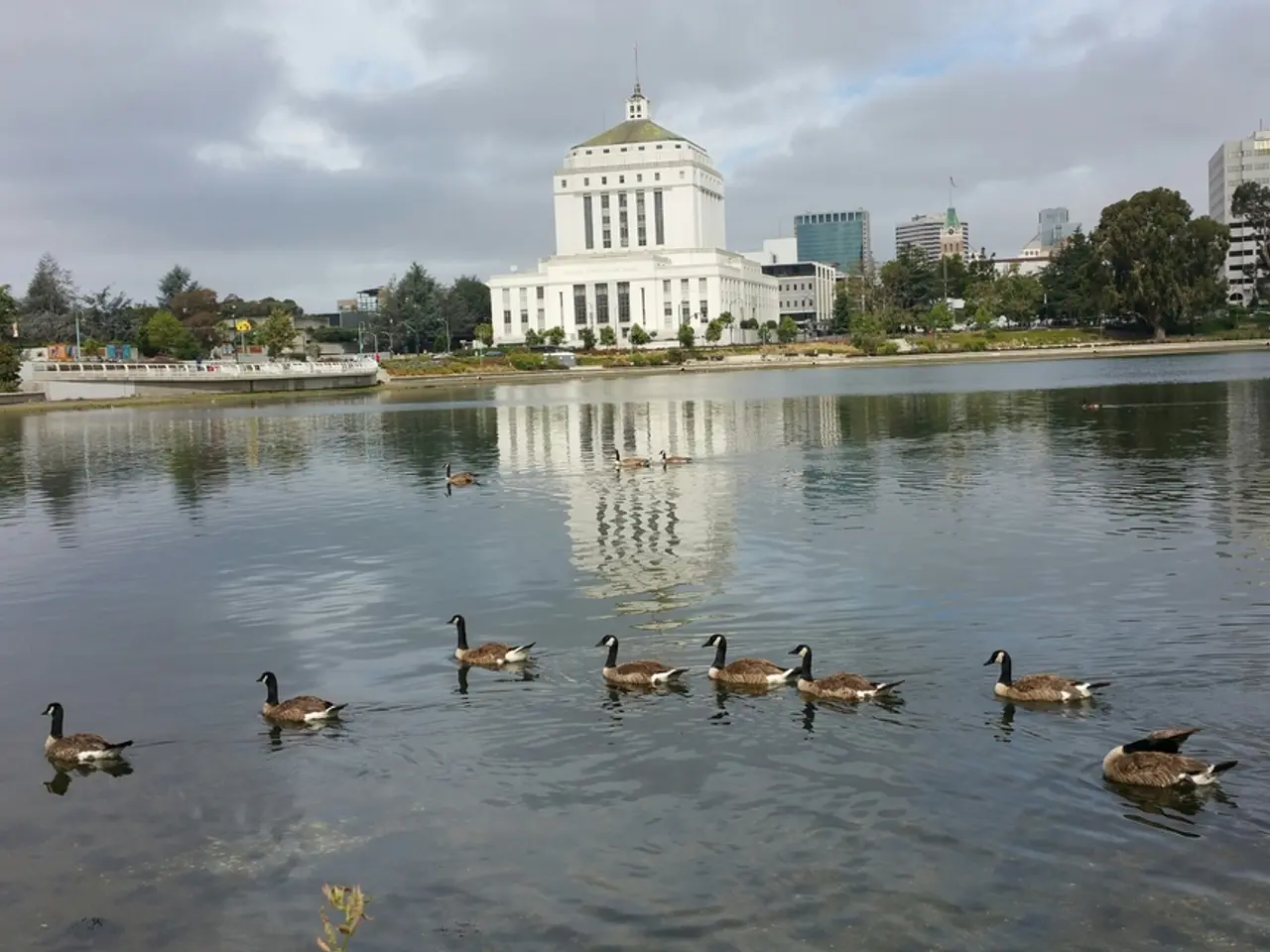Degradation of Ramsar wetlands in Spain causes harm to waterfowl in Europe
The Donana National Park, along with the Ebro Delta and the Albufera de Valencia, are currently in a critical state, according to concerns raised by UNESCO. These Ramsar wetlands are facing progressive deterioration, with water shortages, pollution, overexploitation of aquifers, and institutional abandonment being key factors.
Ecologists are urging the State and autonomous communities to take immediate and effective measures to halt the deterioration of these vital wetlands and prevent the extinction of key species. The call comes as the 15th Conference of the Parties to the Ramsar Convention on Wetlands is underway.
One such endangered species is the Marbled Newt, a European endemic that is critically endangered in Spain and reproduces only within its borders. Another species of concern is the Marbled Duck, previously critically endangered, which saw record figures in 2024 with 130 broods and 806 chicks born due to the Life Marbled Duck project.
However, nine wetland-dependent bird species in Spain are classified as "endangered" and eight as "vulnerable" according to the International Union for Conservation of Nature (IUCN). The common grebe's wintering population, for instance, has been reduced to 2,533 individuals, a significant decrease from decades ago.
The Ebro Delta, in particular, has shown a sustained decline in populations of Anatidae and coots since 2007, associated with salt intrusion, reduction in sediment and flow, agricultural intensification, and the presence of invasive species. In the Albufera de Valencia, the loss of water quality and structural deterioration of the habitat has caused a continuous decrease in the abundance and diversity of aquatic birds.
Moreover, Spain's 76 Ramsar wetlands are suffering from serious degradation problems, affecting biodiversity, particularly aquatic birds. These problems include water shortages, illegal extractions, pollution, administrative inaction, and urban development, all of which have drastically reduced the biodiversity of these wetlands.
Ecologists are also requesting immediate updates of catalogs of threatened species, approval and effective application of recovery plans, strengthening sustainable hydrological and territorial management, and international involvement in the conservation of migratory birds, with special cooperation with North African countries.
The main wintering sites for many aquatic birds in Europe are shifting north due to more benign winter temperatures, a consequence of climate change, making food more accessible. However, this shift could pose new challenges for the conservation of these species in Spain.
Spain is home to 40% of Europe's wetland-dependent bird species, but more than 50% of these species have conservation problems, with 90 of them at risk. The urgency to act is clear, as these wetlands play an essential role not only for birds in winter or during breeding, but also as resting and feeding areas for multiple species during migrations.
Despite the calls for action, it remains unclear which Autonomous Communities in Spain have not yet fulfilled their legal obligations to protect and preserve the Ramsar wetlands. Furthermore, 80% of the recovery and conservation plans for aquatic birds are still pending approval, violating current legislation.
The situation is critical, and urgent action is needed to protect these vital ecosystems and the species that depend on them.
Read also:
- visionary women of WearCheck spearheading technological advancements and catalyzing transformations
- Recognition of Exceptional Patient Care: Top Staff Honored by Medical Center Board
- A continuous command instructing an entity to halts all actions, repeated numerous times.
- Oxidative Stress in Sperm Abnormalities: Impact of Reactive Oxygen Species (ROS) on Sperm Harm








